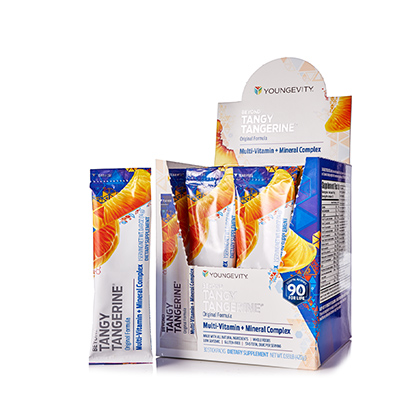Blog Archives
The many health benefits of turkey
Elements4Health.com
2008 November 26
 The domestic turkey is a descendent of the Wild Turkey (Meleagris gallopavo), and is native to the United States, and the Ocellated Turkey (Meleagris ocellata) is native to Mexico.
The domestic turkey is a descendent of the Wild Turkey (Meleagris gallopavo), and is native to the United States, and the Ocellated Turkey (Meleagris ocellata) is native to Mexico.
The turkey has become synonymous with Thanksgiving in the United States and is becoming more popular due its health benefits.
The health benefits of turkey include reduced LDL cholesterol, mood-enhancing properties, helps prevent cancer, boosts testosterone and immune system.
Health Benefits of Turkey
|
|
|
|
|
|
|
Cancer treatment can cause cancer
Prostate cancer treatments spur cancer to grow
Sherry Baker
Natural News
2011 November 9
 When men with advanced prostate cancer are treated with hormone therapy, the cancer usually stops growing for a year, maybe two. But then the disease often begins to grow again, and mainstream doctors have few if any options left to try to help.
When men with advanced prostate cancer are treated with hormone therapy, the cancer usually stops growing for a year, maybe two. But then the disease often begins to grow again, and mainstream doctors have few if any options left to try to help.
So why did the hormone treatment work for a while and then stop? According to findings recently published in the Proceedings of the National Academy of Sciences, the explanation may be unexpectedly simple: the very drugs given to men to fight their prostate cancer actually spur some cancer cells to grow.
The new study, headed by Chawnshang Chang, PhD, director of the George Whipple Laboratory for Cancer Research at the University of Rochester Medical Center, and colleagues, suggests the androgen receptor, through which male hormones like testosterone work, turns out to be far more versatile than scientists realized. Specifically, a common form of hormone therapy for prostate cancer works by blocking the androgen receptor. And Dr. Chang’s team found that it was true that depriving the male body of testosterone this way can at times stop cancer in the short term by preventing some cells in the prostate from growing. But, unfortunately, they also discovered that blocking the receptor can actually cause a revving up of other prostate cell growth and can lead to a proliferation of cancer cells down the road.
Men, listen, soy is not your friend.
Sex and the Soybean: A Cautionary Tale
Dr. Kaayla Daniel
Recovery from Modern Diets
2011 October 13
 Can soy be used as an aid to celibacy? Is it true that Zen monks eat soy because naughty behavior goes down when tofu consumption goes up? Do Japanese wives feed unfaithful husbands extra helpings of soy? Could politicians with the “zipper problem” better control their errant behavior if they consumed enough soy?
Can soy be used as an aid to celibacy? Is it true that Zen monks eat soy because naughty behavior goes down when tofu consumption goes up? Do Japanese wives feed unfaithful husbands extra helpings of soy? Could politicians with the “zipper problem” better control their errant behavior if they consumed enough soy?
Anecdotally, the answer is, yes, and a fair amount of science backs it up. To date, many studies show that soy’s estrogenic isoflavones interfere with the production and usage of testosterone in the body. Some evidence points to soy as a feminizing influence that can lead to gynecomastia (man breasts). And there’s massive evidence of reproductive toxicity.
The latest news is a case study in the journal Nutrition. The subject is a 19-year-old heterosexual man who become vegan, began consuming a lot of soy, and, soon after, experienced loss of libido and erectile dysfunction. Prior to adopting veganism, he had an active sex life with no reported problems.
Lab assessment revealed low levels of free and total testosterone with increased levels of DHEA. During the year prior to this workup, the young man’s diet had packed a whopping punch of soy isoflavones, averaging 360 mg per day, from soy milk, soy crisps, tofu, soy sauce, soy nuts and edamame. This level of soy consumption is far above average, yet increasingly common these days as people quit meat and dairy products for soy substitutes. Prior to becoming vegan, the man had been on a Standard American Diet (SAD). After discontinuing his vegan diet and eliminating soy foods altogether, he noticed a gradual improvement in sexual function over the course of a year and his lab tests revealed gradual normalization of testosterone and DHEA levels.
The researchers conclude with the usual caveat “more studies are needed.” Yes, indeed, and as soy consumption increases, doctors and other health practitioners will most likely report many such cases. Let’s hope future studies focus on women as well as men, and include a study on the link between sex, soy and vulvodynia. What to do now? The science may not be entirely in, but the message is already clear: “If you love and respect your naughty bits, Practice Safe Soy.”
To read the study:
Hypogonadism and erectile dysfunction associated with soy product consumption.Siepmann T, Roofeh J, Kiefer FW, Edelson DG.Nutrition. 2011 Jul-Aug;27(7-8):859-62. Epub 2011 Feb 25.
For more about soy and reproduction, including citations, read chapter 29 of The Whole Soy Story: The Dark Side of America’s Favorite Health Food. For information on how much soy is safe to eat read “Soy Alert” articles and blogs on this website, and also visit: www.naughtynutritionist.com/naughtynutritionist.com/Practice_Safe_Soy.html
